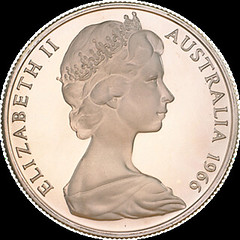
PREV ARTICLE
NEXT ARTICLE
FULL ISSUE
PREV FULL ISSUE
2017 AUSTRALIAN HIGH-RELIEF SILVER COIN SERIESMichael Alexander published a nice article February 3, 2017 onCoin Update about the new high-relief Australian silver coin series. Here's an excerpt. -Editor
The 2-shilling coin was issued as a new 20-cent coin; the old shilling coin became a new 10-cent coin; and the old 6-pence or half-shilling coin was now a new 5-cent coin. This change in currency system also enabled the Royal Australian Mint—which itself was inaugurated the year before decimalisation in order to fulfill the need for new Australian coins—to also remove the silver content from circulation coins (with the exception of a new 50-cent coin, which was minted with a fineness of 80% fine silver). The 1966 decimal-coin designs were created by eminent artist and silversmith Stuart Devlin and reflected the many diverse animals found on the continent. The series consisted of the six new denominations, from the new 1 cent to 50 cents, and included the effigy created by Arnold Machin, today considered one of the most widely recognised portraits of Queen Elizabeth II ever used on coinage. 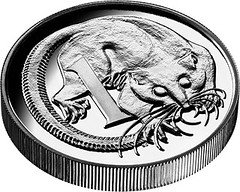 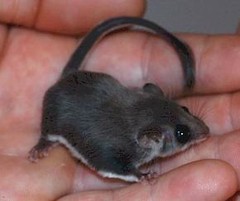 The first coin in the new, 2017 series is a piedfort (double-thickness) coin produced using a high-relief striking process. The design re-creates that on the 1966 1-cent coin: the feather-tailed glider, also known as the pygmy gliding possum. With its distinctive, big eyes and brownish fur, this little marsupial measures just 6.5 to 8 centimetres (2.6 to 3.1 inches) from nose to rump and weighs about 12 grams (0.42 ounce), making it about the size of a small mouse. It is the world’s smallest gliding mammal. This species native to eastern Australia and is named for its long, featherlike tail (click here and use the magnifier tool for a close look). The 1-cent coin was eventually removed from circulation in 1991, after 25 years in use. Here are some of the reverse designs. -Editor
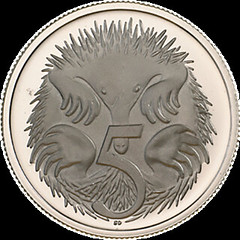 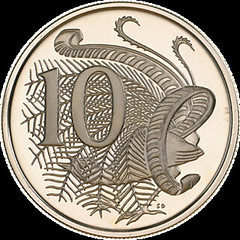 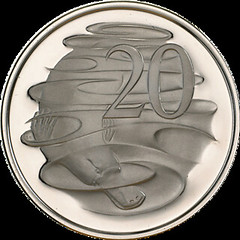 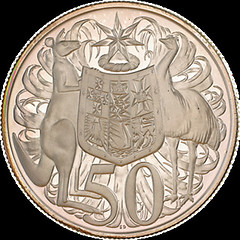 To read the complete article, see: Wayne Homren, Editor The Numismatic Bibliomania Society is a non-profit organization promoting numismatic literature. See our web site at coinbooks.org. To submit items for publication in The E-Sylum, write to the Editor at this address: whomren@gmail.com To subscribe go to: https://my.binhost.com/lists/listinfo/esylum All Rights Reserved. NBS Home Page Contact the NBS webmaster 
|
